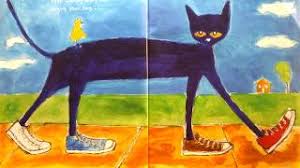Do you always do what your parents tell you to do?
Here is a story about a boy named Jack who does exactly what his mother says to do – but with unexpected consequences! The version read here is an English folktale collected by Joseph Jacobs in the 19th century, but there are other versions from different cultures. Every culture has stories about “noodleheads” – people who are silly or not very smart or don’t think for themselves. If your teachers talk about critical thinking skills, remember this story and learn to assess the facts!
Some things which may be new to you:
Jack and his mother lived on the “common” – which is another name for the village green. In early days (and today, in some New England villages), there was a park in the middle of town that people used for their sheep. It wasn’t as big as some of our parks and playgrounds today – just about a block long and a block wide. The shops and houses were on streets that faced the common.
Jack’s mother made her living by spinning – the wool from the sheep is spun into yarn or fiber and used to make cloth and sweaters and blankets. She would have turned the wool into fiber with a spinning wheel that stood on three legs.
Jack’s employers didn’t always pay him with money – that was common in earlier centuries, especially before the Industrial Age, when goods were manufactured rather than produced on farms and in the home.
Note: In the original text, Jack’s mother resorts to name calling, which is not acceptable today. While Jack’s actions weren’t the best choices, no one should be called names because of poor choices.
The ending of this story is one found in many tales. This time it’s a rich man’s daughter who doesn’t laugh, but in many of the stories it is a princess.
Try this: Choose one family member to be the prince or princess who doesn’t laugh. The other family members take turns trying to make them laugh. Use the timer on your smartphone to see who can “not laugh” the longest and keep score.
You can find the text for this story online here:
http://www.gutenberg.org/files/7439/7439-h/7439-h.htm#link2H_4_0029




